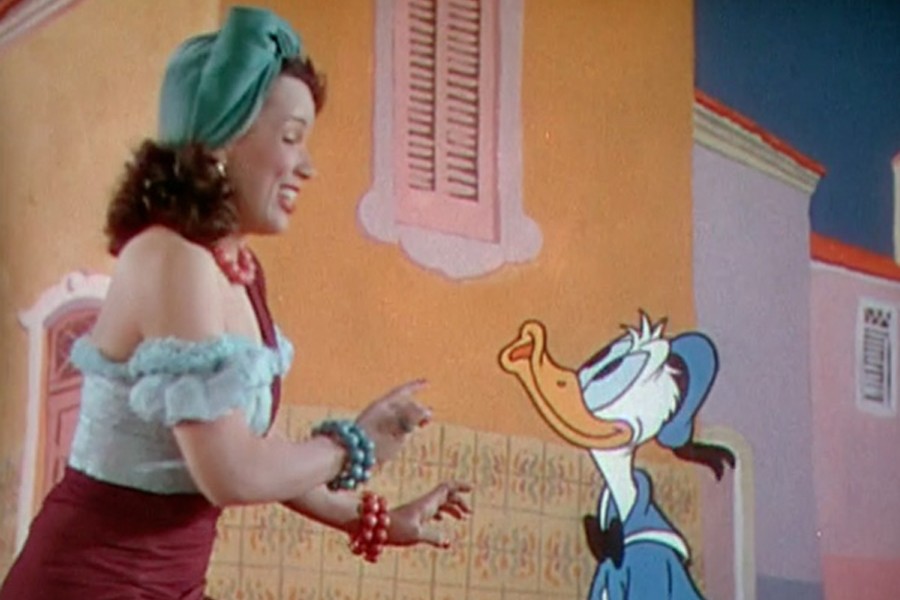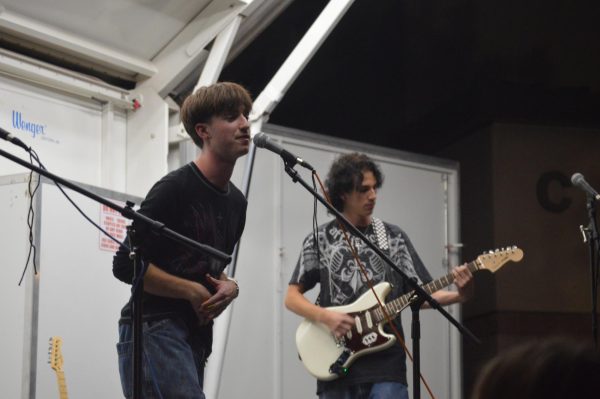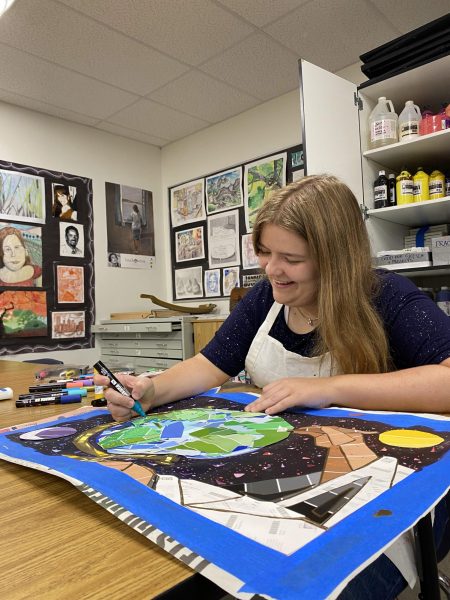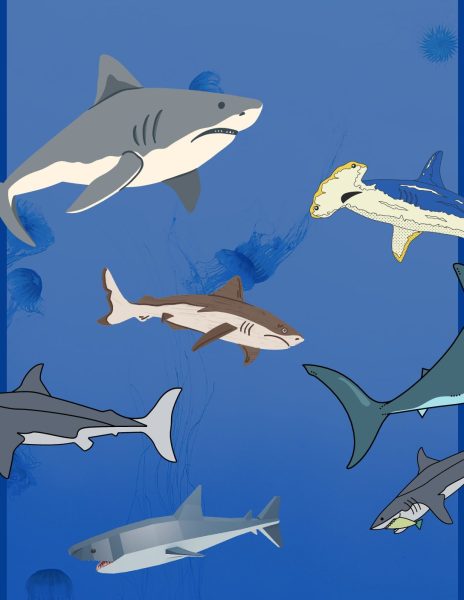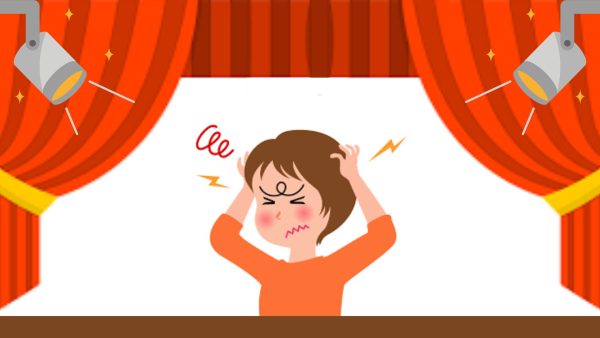The Disney Year: A hearty “adios!” is more than Disney’s Latin films deserve
Donald Duck shamelessly flirts with actress and human being Aurora Miranda in a sequence from “The Three Caballeros” (Disney).
July 1, 2015
The output of Walt Disney Animation Studios–currently totaling 54 full-length films–has been cherished by audiences young and old for almost 80 years. In this weekly online feature, arts and entertainment editor Nathan Tucker will review and rank each of them.
The year is 1941 and Uncle Sam is worried that decades of big stick despotism will drive Latin America into Hitler’s arms. To win back the Western Hemisphere, the government asks Walt Disney to take a goodwill tour south of the border and make a series of cartoons about how great Latin America is. Because Disney happens to be short on cash, he releases these shorts together as his next two feature-length films: Saludos Amigos and The Three Caballeros.
These are propaganda films and, like most propaganda, they suffer from how nakedly they pursue their ambitions. Every frame feels calculated and fabricated to produce the highest ratio of goodwill per second. While these depictions of South America may have been mind-expanding seventy years ago, they come off as condescending today.
Grounded by color filmstrips from the trip, Saludos Amigos is easily the better of the two. Its greatest offense is mere boredom, which is somewhat mitigated by the distinct separations between its four sequences. No matter how interminable one short is, at least something different is around the corner. And these shorts are interminable: “Lake Titicaca” sees Donald Duck making an excessive hullabaloo about exoticism, “Pedro” stretches its weightless story about a little mailplane past the three minute mark it deserves, “El Gaucho Goofy” educates the public about the useless distinctions between North and South American cowboys, and “Watercolor of Brazil” exists solely to introduce José Carioca, a Brazilian version of Donald Duck. The gags never rise above mildly amusing and the flat animation suffers in comparison to previous features.
But whatever its flaws, Saludos Amigos never descends into unwatchable inanity. That nadir is reserved for The Three Caballeros, which reheats the leftover ideas from the South American trip and packages them as gifts Donald receives from his “friends in Latin America.” The film starts off decently enough with two shorts about a tropically-inclined penguin and a flying donkey–no worse than those that inhabit Saludos. Then José appears to take Donald on a train to Bahia: that ride, executed in the unmistakable style of Mary Blair, is the last tolerable portion of The Three Caballeros.
Immediately upon arrival in Bahia, the viewer is assaulted by the sudden appearance of live-action actors who cavort and sing alongside the cartoon fowl. The animation/live-action integration was a major technical achievement for the time, but it is still awkward enough that it thrusts the audience outside of the film. Even worse, the technique is used exclusively so that Donald can lustfully pursue human women, a humorless gag that quickly grows obnoxious. With the introduction of Panchito, the stereotypical Mexican Caballero, the movie ramps up the senseless sound and fury to unbearable levels, each sequence trying to top the last in pure inanity. These ambitions culminate in a surreal trainwreck of a musical sequence centered on a live-action woman inside a flower singing to Donald and also, for some reason, dancing cacti. Then, finally, mercifully, the end title rolls and the awful abomination sputters off the screen.
If these films are unfamiliar to you, it is for a good reason: they are embarrassing and excruciating. Disney’s Latin American odyssey may have improved foreign affairs–but it had the opposite effect on his films.
The List:
- Bambi
- Fantasia
- Pinocchio
- Dumbo
- Snow White and the Seven Dwarfs
- Saludos Amigos
- The Three Caballeros

